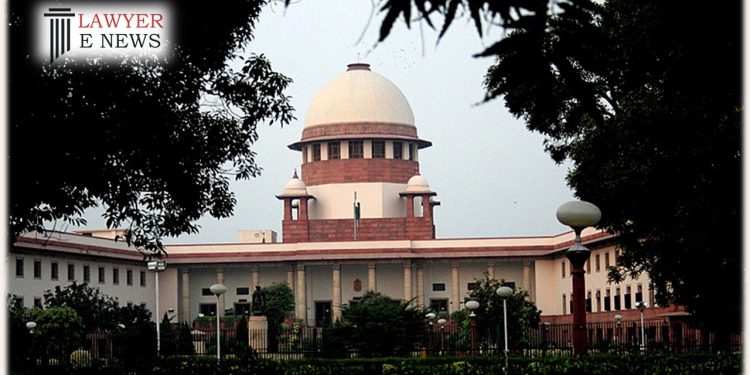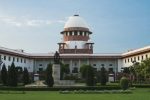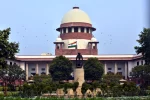Default Bail No More As Easy As Earlier U/S 167(2) Cr.P.C. – New Guidelines – SC

The Supreme Court ruled that if a strong case can be made from the chargesheet that the accused has committed a non-bailable crime, the bail granted under Section 167(2) Cr.P.C. can be revoked.
Supreme Court held “The bare filing of the chargesheet subsequent to a person being released on default bail under Section 167(2) Cr.P.C. cannot be a ground to cancel the bail of a person who is released on default bail,”
A case was first filed under Section 174 of the Criminal Procedure Code. A case was then filed in accordance with Section 302 read in conjunction with Section 120-B of the IPC.The respondent was detained by the State Police Agency and taken into judicial custody.
The 90-day waiting period was no longer valid. The respondent submitted a bail application for default bail in accordance with Section 167(2) of the Cr.P.C. on the very day after the 90-day period had expired.
The JMFC approved the default bail for the respondent. As per the decision, the respondent was freed on bail.
The C.B.I. then filed a supplementary chargesheet under Sections 201 and 120-B read with 302 and 201 I.P.C. against the defendant, D. Siva Shankar Reddy (A-5), as well as Sections 201, 506 and 120-B read with 201 I.P.C. against the respondent.]According to Section 439(2) of the Criminal Procedure Code, the C.B.I. filed a criminal petition with the High Court asking for the respondent’s bail to be revoked.
The High Court dismissed the aforementioned petition primarily on the grounds that bail could not be revoked on the basis of merits after respondent No. 1 was freed on default bail pursuant to Section 167(2) of the Criminal Procedure Code.
The bench was asked to consider the following:
Whether the bail granted under the proviso to sub-section (2) of Section 167 Cr.P.C. for failing to wrap up the investigation within the time frame specified therein can be revoked after the presentation of a chargesheet, and if the answer to the question is yes, then what grounds and circumstances can the bail be revoked?
After citing a few cases, the Supreme Court stated that the issuance of a chargesheet after a person has been released on default bail pursuant to Section 167(2) of the Criminal Procedure Code cannot be used as justification for revoking that person’s release. On the other hand, over and above other grounds on which the bail to a person who is released on bail can be cancelled on merits, upon filing of the chargesheet at the conclusion of the investigation, if a strong case is made out and on merits, it is found that he has committed a non-bailable offence/crime, taking into consideration Section 437(5) and Section 439(2) Cr.P.C.
The bench further opined that there is no absolute bar as stated and held by the High Court in the impugned judgement and order, which stated that once a person is released on default bail under Section 167(2) Cr.P.C., his bail cannot be cancelled on merits and that it can be cancelled on other general grounds such as tampering with the evidence or witnesses; not cooperating with the investigating agency; and/or not cooperating with the concerned Trial Court, among others.
The Supreme Court stated that even if the accused committed a very serious offence, such as an NDPS violation or even a murder, he still managed to work with a convenient investigating officer, fail to submit the chargesheet within the allotted time period specified in Section 167(2) Cr.P.C., and obtain release on default bail, which could result in a premium being placed on illegality and/or dishonesty. Such release of the accused on default bail is based entirely on the proviso to subsection (2) of Section 167’s proviso and not at all on the merits.
T. Gangi Reddy @ Yerra Gangi Reddy
vs
The State Through The Central Bureau of Investigation






